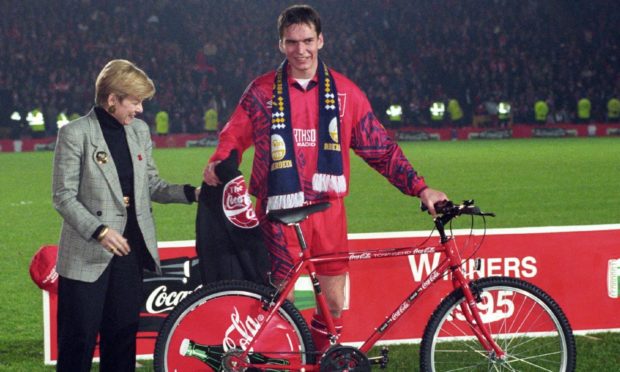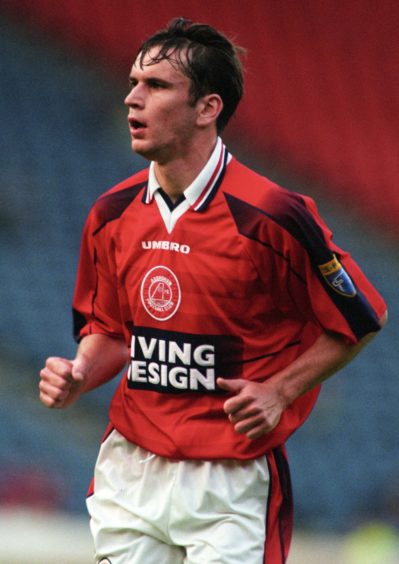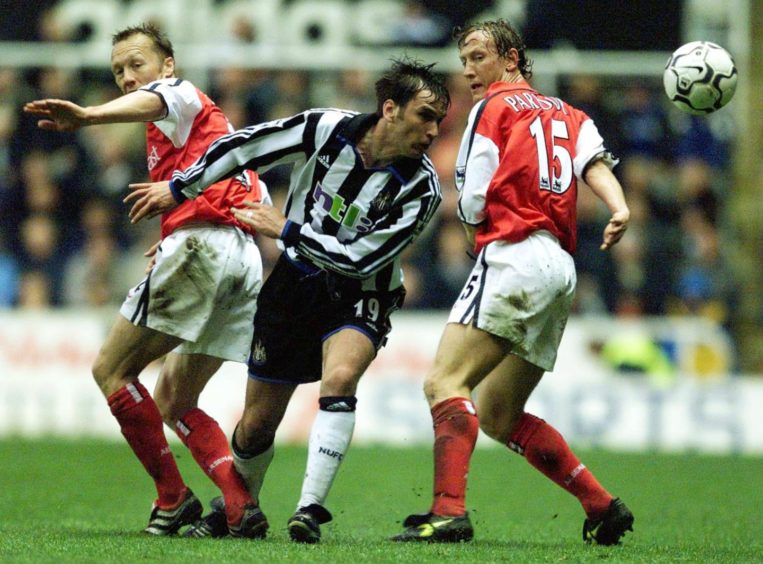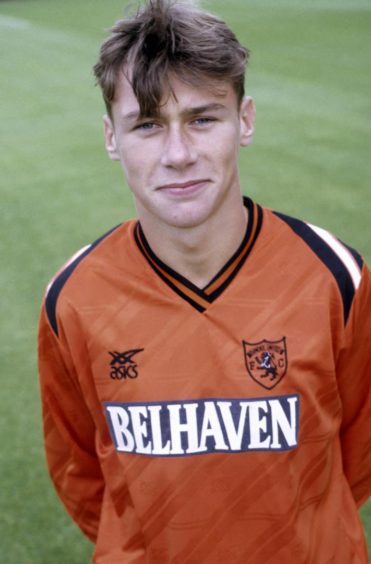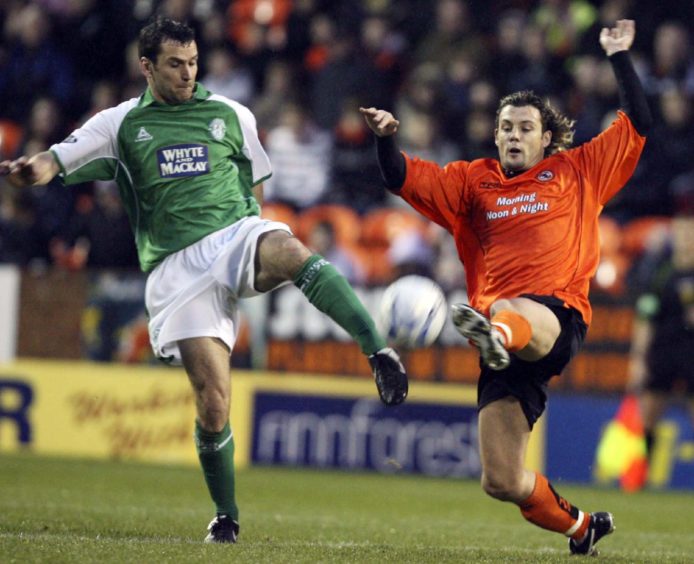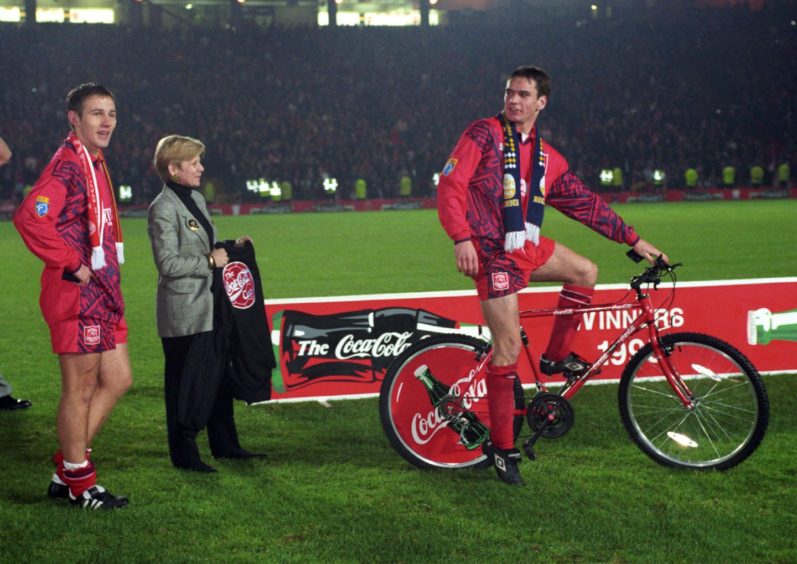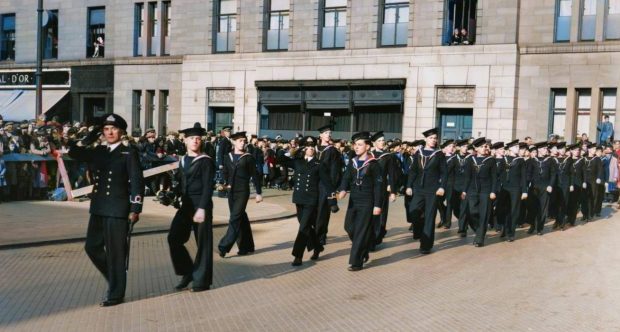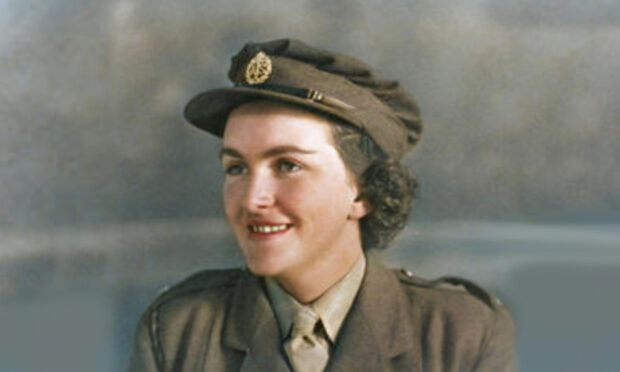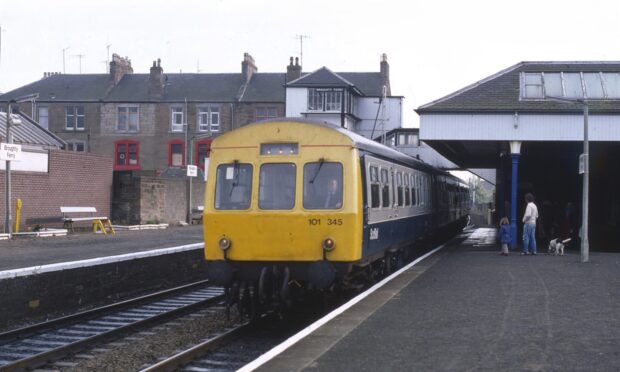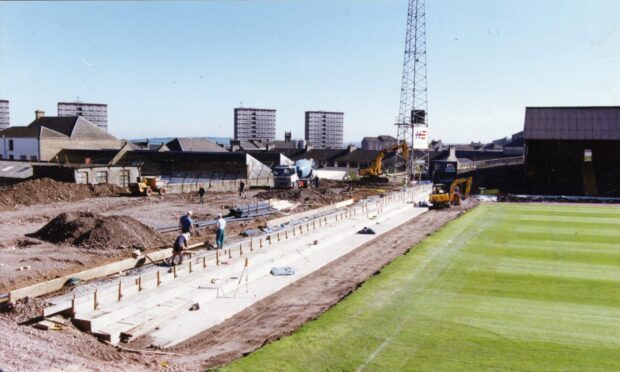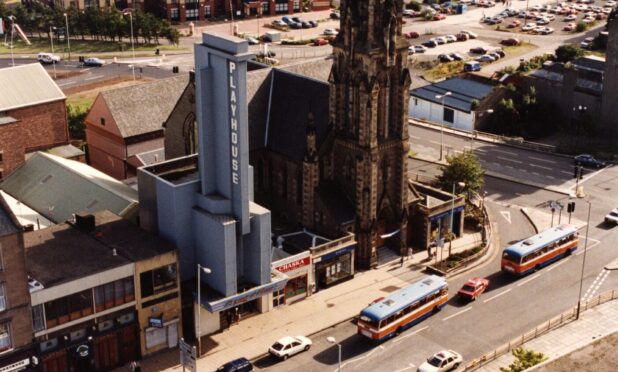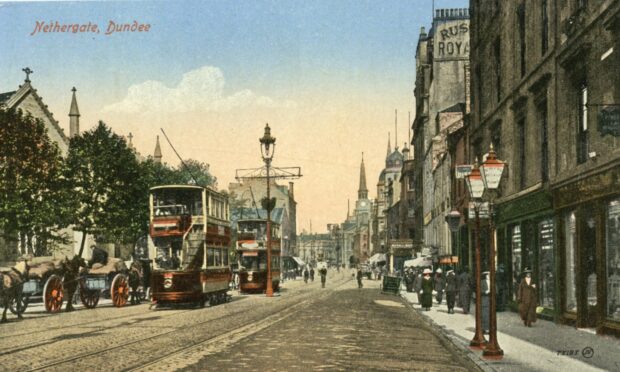It’s one of the more surreal images in Scottish football; the sight of Aberdeen star Stephen Glass standing next to a mountain bike, decked out in Coca-Cola colours, as his man of the match prize at Hampden Park in 1995.
Heaven only knows what the sponsors expected the teenager to do with the item – did they imagine he might unveil some Danny MacAskill-style stunts after his excellent performance in the Dons’ 2-0 victory over Dundee in the League Cup final?
But that was another time, another place, and looking back to those days when Glass was widely regarded as one of the best youngsters of his generation reminds you of the thin divide which exists between hitting the heights and languishing on the sidelines.
When he arrived at Pittodrie and broke through into the first team during a relegation battle in the 1994-95 season, his gifts often glistened and glimmered amid the drab displays which were all too regularly served up to the long-suffering Pittodrie faithful almost a decade after Alex Ferguson had left the club to join Manchester United.
At that stage, the cognoscenti predicted a luminous future and lustrous international honours for the Dundonian.
Yet, blighted and bedevilled as he was by injuries, Glass never quite fulfilled those great expectations. His CV offers a reminder there are no guarantees in sport, and how cruelly the rug can be pulled from under someone’s feet.
In which light, that peculiar 1995 invitation to him to get on his bike could be regarded as a piece of gallows humour from the man upstairs.
His Glass was half-full at Hampden Park
Glass, who has been coaching in the United States for several years, was an irrepressible character in the Dons cup final team. But he had good company at Hampden.
As AFC Heritage Trust member, Stewart Eaton, recalled: “There were some fantastic players in that Aberdeen side, including Stewart McKimmie, Brian Grant, Joe Miller, Duncan Shearer, Paul Bernard, Billy Dodds, Eoin Jess and, of course, Stephen Glass.
“The Dundee side also had some great players such as Jim Duffy, Morten Wieghorst, who went on to play for Celtic and Neil McCann, who did likewise with Rangers.
“The first goal was a thing of beauty. A fantastic ball from McKimmie, the pace of Glass with a great ball into the box, the determination of Shearer to try the diving header, and the coolness of Dodds to put the ball in the net. Wonderful football.
“The second goal again had the 19-year-old Glass at the heart of it. Released by Billy Dodds, he beat his man, took it to the byline, and sent in the perfect cross for Shearer to bullet in a header for 2-0. Another wonderful goal and that was that.
“Aberdeen totally deserved their win. It was a superb display of pace and attacking football and we all went home happy that night.”
‘This was as easy as Aberdeen could have hoped for’
Jock Gardiner, another trust stalwart, was equally enthused by the emphatic manner in which Roy Aitken’s personnel brought a piece of silverware back to the Granite City.
But, while he revealed that the aforementioned mountain bike is currently in the heritage organisation’s storage area at Pittodrie, there is a sense of “What if” about his recollections of Glass, who subsequently moved to Newcastle United – and swapped Duncan Shearer for Alan Shearer – in another north-east part of Britain.
He said: “Dundee froze on the big occasion and that allowed us all as nerve-free a day as you could ever hope to have as an Aberdeen fan at Hampden with Stephen Glass showing everybody how much potential he had.
“The 20,000 or so Dandies in a 33,000 crowd kept a good atmosphere going throughout the match, even though the old South stand was lying almost empty due to the impending reconstruction of the stadium.
“It was a good start to Roy’s managerial career, after we had stayed up in the play-offs a few months earlier. But things soon turned sour after that triumph.”
The player was highly rated at St James Park
It’s one of the great sports quiz questions: which two Scots played for Newcastle United against Manchester United in the FA Cup final at Wembley in 1999?
The answer is complicated by the fact that neither started the contest which the Red Devils won 2-0 through goals from Teddy Sheringham and Paul Scholes, but manager Ruud Gullit introduced Duncan Ferguson and Stephen Glass in the second half as his side attempted to stem the tide of their Old Trafford opponents.
The duo both signed up with Gullit in 1998, yet neither flourished under the ebullient Dutch maestro, who often seemed under the impression that tactics were a type of mint sweet. Glass, the first Scot to play for Newcastle since Alex Mathie, arrived with a lofty reputation and was soon involved in European action when the club tackled Partizan Belgrade, winning 2-1 at home, but losing the second leg 1-0.
Before long, the controversial Ferguson, late of Dundee United, Rangers and HMP Barlinnie – where he was incarcerated after assaulting Raith Rovers’ Willie McStay – was also part of Gullit’s squad, yet despite his aggression, talent in the air and subsequent success at Everton, both on and off the pitch, matters simply didn’t work out.
Two excellent players won just eight caps between them
In other circumstances, the pair might have amassed scores of Scotland caps – as it was, they mustered just eight between them, seven for Ferguson and a solitary outing for Glass as a substitute against the Faroe Islands during a 2-1 victory in 1998.
It was a paltry outcome for the man who had excited so many people at the outset of his career. But a serious knee injury, one of several grievous blows on his journey, put him out of the picture at Newcastle even as the mercurial Gullit – a man with a guid conceit of himself – was replaced by the more down-to-earth Bobby Robson.
Once the Scot had recovered from his travails and regained full fitness, life still proved a tough challenge, particularly given how Robson treated him as little more than a squad utility player: a situation which would have unthinkable a couple of years earlier.
In the end, Glass was offered just a bit-part role in Newcastle’s next two campaigns with six league starts out of a possible 76, and though he scored the equaliser in a 1-1 draw with Manchester United in December 2000, he left the club at the end of the season.
No wonder he spoke later about the folly of taking anything for granted in football.
Glass had Georgia on his mind in 2014
I caught up with the former Aberdeen, Newcastle, Watford, Hibernian, Dunfermline and Carolina RailHawks star shortly after a hip injury had terminated his playing career and he had decided to pursue his coaching aspirations in the United States.
From the outset, it was obvious he was a thoroughly modern devotee of the beautiful game. There were no histrionics or tantrums, no clichés in his responses, as he discussed the challenges of nurturing enthusiasm in a country where ‘soccer’ still toils for publicity and mass participation numbers among the majority of the population.
There had been happier memories from his spell at Hibernian in 2003 where his consistent performances under Tony Mowbray proved pivotal in helping the Leith side gain a UEFA Cup place by finishing third in the Scottish Premier League.
The Cup win in 1995 should have been the catalyst
But, to all intents and purposes, he was done with top-class football by the age of 30 and it would have been very easy for him to feel bitter or resentful about the injury problems which had plagued him.
Not a word of it. Allowing himself a brief trip down memory lane, Glass offered enough wisdom to explain why he is the front-runner to succeed Derek McInnes at Pittodrie.
He said: “We used to have the attitude [at Aberdeen] that we could beat anyone and I was one of the young guys in the 1995 side with a lot of ambition.
“I suppose I thought that these big cup final occasions would come along on a regular basis, but football isn’t like that for most teams in Scotland or England.
“And yet the result in no way flattered us. We had a good blend of players, we had a really big fan base who were passionate about the club, and we thought that victory might be the impetus for us to challenge the Old Firm in the future.
“It didn’t happen, but I certainly wouldn’t have guessed that the club wouldn’t win any silverware between then and 2014. It was too long, to be honest.”
The latter word is significant. Honesty. It has been in his DNA since he was growing up in Dundee. And one suspects that Glass is one of those driven souls who might use his personal frustrations to fuel genuine achievement among others in a management role.
And, at just 44, he has plenty of his time on his side.
A postscript as a sign of the times
There is plenty of gnashing of teeth and hand-wringing these days among Scottish clubs about their leading assets being snapped up for peanuts by English rivals.
But let’s not forget that when Newcastle came calling for Glass in 1998, they offered the Dons a risible £100,000 for a rising talent who had just turned 22.
The Pittodrie club wanted £1m for his services and eventually, following the deliberations of a three-man independent tribunal which convened in Manchester, the transfer fee was set at £650,000.
Even at this distance, and given what happened later, it seems like a bargain.
Or a piece of cut-price Glass!
